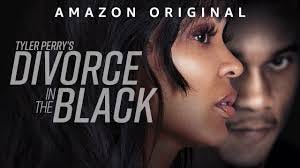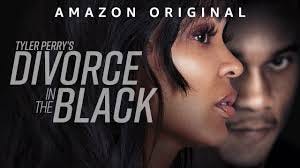Tyler Perry's 'Divorce in the Black': Time for a Creative Evolution
Rapid Reel Review: 1 out of 4
“When people get divorced, there is so much trauma and heartache and sadness that is in the red. Bills. Debt. But ‘Divorce in the Black’ means being free, being in a great space you can move on in your life.” — Tyler Perry
Is Tyler Perry's Storytelling Stuck in the Past?
So, let’s talk about Tyler Perry’s latest “melotrauma,” Divorce in the Black. I’ve given Perry countless breaks over the years because, let’s be honest, the man’s hustle is undeniable. From building a dedicated audience through self-produced stage plays to movie box office hits and TV shows to his recent production/streaming deals with Netflix and Amazon Studios, Tyler Perry’s journey is the epitome of rags-to-riches. I admire how he’s built his own studio and maintained creative and financial control over his projects. That’s impressive and deserves respect. But… when will the storytelling catch up?
The Same Old Story
Nearly 20 years after the release of his first film, Diary of a Mad Black Woman, Tyler Perry’s characters are still underdeveloped, and the plots feel manipulated. Unfortunately, Divorce in the Black is much more of the same. It makes me wonder if the film’s “R” rating stands for Ratchet.
Enter Ava and Dallas
Ava (Meagan Good), the lead protagonist, is yet another stereotypical long-suffering, put-upon, self-sacrificing damsel in distress. Ava is helpless and frustratingly passive. Nevertheless, she goes above and beyond to love and support Dallas (Cory Hardrict), her physically and emotionally abusive husband. In the opening scene, Dallas cruelly pushes Ava’s hand away when she offers comfort during his brother’s funeral. Dallas is a one-dimensional villain with nary a redeeming quality. What on earth did Ava ever see in this dude? And why is she putting up with all the crap? The film offers little to no clues about their motivations and histories because of the nonexistent character development.
Searching for Answers
I watched Maxine’s Baby: The Tyler Perry Story (also on Amazon Prime) immediately after Divorce in the Black. Perhaps it was my way of searching for answers. The excellent documentary offered a deep dive into Perry’s life and traumas. I was further inspired by his accomplishments, but the same question still nags at me. How is it that Perry, now a major Hollywood player, hasn’t evolved in his storytelling? Instead, it’s getting worse. Seriously.
Time for Change
“Definitely seek help, ask for some guidance.” – Cory Hardrict
Ironically, the actors portraying Ava and Dallas recently divorced their respective spouses. Imagine how insightful the film could have been if the actors’ experiences had influenced the writing. Instead, we got the usual Tyler Perry tropes: good girl/bad boy, pious parents, hunky and understanding rebound guy, the wise, sassy friend, and ne’er do wells.
Perry's writing won’t improve until he confronts his own traumas and engages in some serious introspection. Otherwise, his stories will continue to feel repetitive and underdeveloped. If that’s not something he’s willing or able to do, then why not hire and/or collaborate with other writers to bring fresh perspectives to his projects? These are possible options for Perry to consider if he wants to elevate his storytelling.
A Call to Action
Tyler, it’s time to step your game up creatively and emotionally. The pathology and platitudes are no longer acceptable. We need you to go deeper. It’s time for Maxine’s Baby to grow up.





The film was bad Black Exploitation from the first scene. The only thing that is different is that he stopped hiding behind a religious theme and started including more tawdry language and over the top raunch porn sex. (see Mea Culpa and the nasty sex of that). He claims he's trying to be a more well rounded filmmaker and all its proving is that he is a one trick pony with Madea. Every single project that he does outside the Madea universe comes out like chitterlings on rye crisp - a turd that won't flush down the toilet.